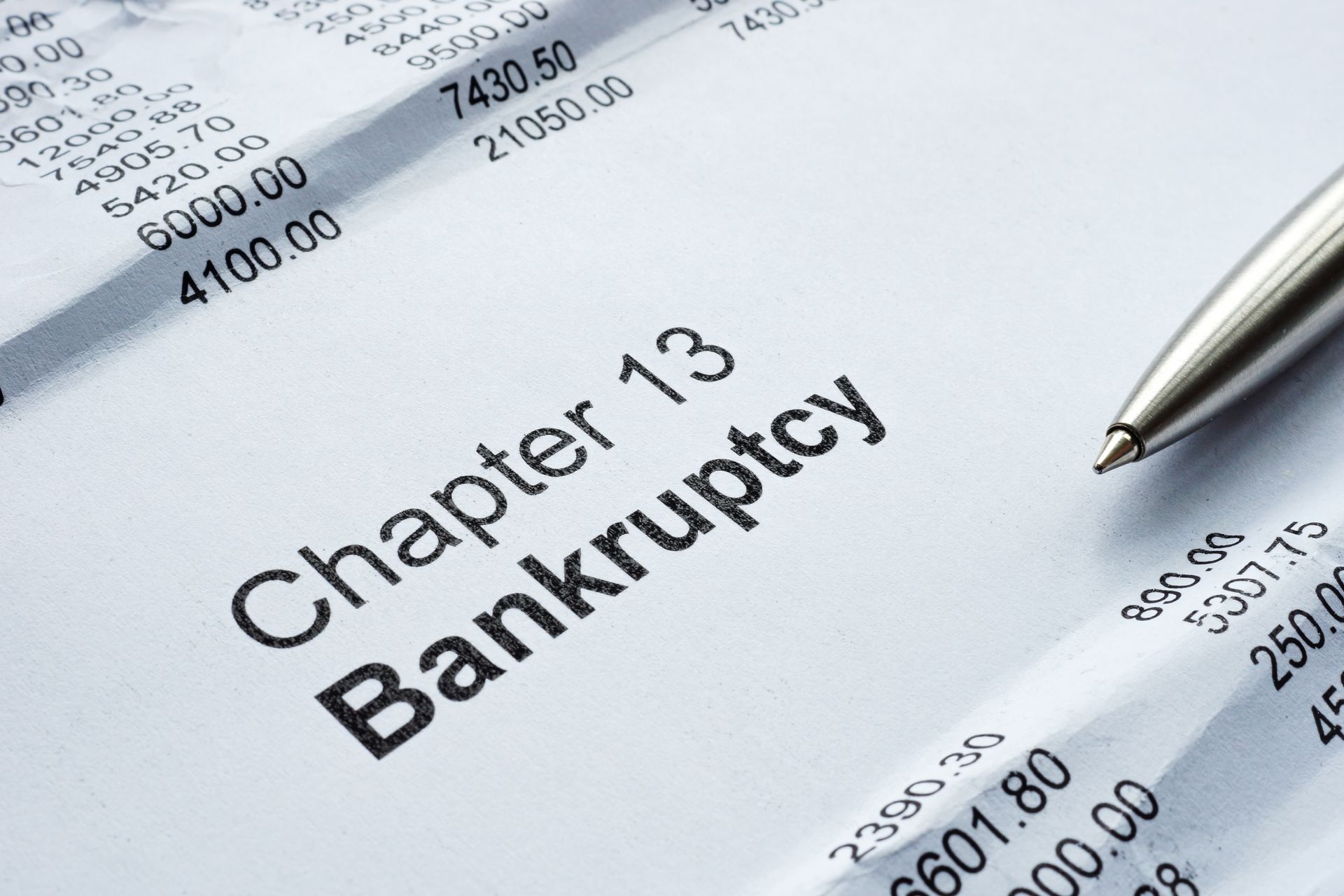How to File for Chapter 13 Bankruptcy: A Step-by-Step Guide to Debt Relief
How to File for Chapter 13 Bankruptcy

If you’re struggling with debt but have a steady income, filing for Chapter 13 bankruptcy can help you regain control of your finances. Chapter 13 allows you to reorganize your debt into a manageable repayment plan, protect your assets, and stop collection actions. It’s often referred to as the “wage earner’s plan” because it relies on your ability to make regular payments.
At J. Singer Law Group, we specialize in guiding individuals through the Chapter 13 process. In this article, we’ll explain what Chapter 13 bankruptcy is, who qualifies, and how to file step by step.
What is Chapter 13 Bankruptcy?
Understanding Chapter 13 Bankruptcy
Chapter 13 bankruptcy allows individuals with regular income to create a repayment plan to pay off debts over three to five years. Unlike Chapter 7, which may involve liquidating assets, Chapter 13 enables you to retain property while making structured payments.
Benefits of Filing for Chapter 13
- Stop Foreclosure: Catch up on missed mortgage payments and prevent losing your home.
- Debt Consolidation: Combine debts into one manageable monthly payment.
- Protect Assets: Keep your home, car, and other essential property.
- Discharge Certain Debts: Remaining eligible debts may be discharged after completing the repayment plan.
Who Can File for Chapter 13 Bankruptcy?
Eligibility Requirements
To file for Chapter 13 bankruptcy, you must meet specific criteria:
Income Requirements
You must have a regular source of income, such as wages, Social Security, or pension benefits, to fund the repayment plan. Your income determines the plan’s length and payment amounts.
Debt Limits
As of 2024, your total secured debts must be less than $1,596,875, and unsecured debts must be less than $478,975.
Common Reasons for Filing
- Avoiding Foreclosure: Include past-due mortgage payments in your plan to catch up and save your home.
- Managing Multiple Debts: Simplify payments by consolidating debts into one plan.
- Preventing Repossession: Protect vehicles or other essential property from repossession.
Steps to File for Chapter 13 Bankruptcy
Step 1: Complete Credit Counseling
Before filing, you must complete a credit counseling course through an approved provider. This course typically takes 1-2 hours and helps you explore alternatives to bankruptcy.
Step 2: Gather Financial Documents
Collect detailed records of your income, expenses, assets, and debts. This includes pay stubs, tax returns, loan statements, and bank account balances. These documents are essential for creating your repayment plan.
Step 3: Prepare and File the Petition
Your attorney will help you prepare and file a Chapter 13 bankruptcy petition with the court. This document includes schedules detailing your financial situation, as well as your proposed repayment plan.
Step 4: Automatic Stay and Its Impact
Filing for Chapter 13 triggers an automatic stay, which halts all collection actions, including foreclosure, wage garnishments, and lawsuits. This gives you immediate relief and time to work on your plan.
Step 5: Create a Repayment Plan
Work with your attorney to develop a repayment plan that fits your budget. The plan prioritizes secured debts (like mortgages and car loans) and includes payments toward unsecured debts based on your disposable income.
Step 6: Attend the 341 Meeting of Creditors
About 21-40 days after filing, you’ll attend a 341 Meeting of Creditors, where the bankruptcy trustee reviews your plan and creditors can ask questions. Your attorney will prepare you for this meeting.
Step 7: Confirm Your Repayment Plan
The court will hold a confirmation hearing to approve your repayment plan. Once confirmed, you and your creditors are legally bound to its terms.
Step 8: Make Payments and Complete Your Plan
Make regular payments to the bankruptcy trustee, who distributes the funds to your creditors. Payments typically last three to five years, depending on your income.
What Happens After Filing Chapter 13 Bankruptcy?
Managing the Repayment Period
During the repayment period, it’s crucial to stay on track with payments and avoid taking on new debt. Your attorney can help address any issues that arise.
Receiving a Discharge After Completion
After successfully completing your repayment plan, the court will discharge any remaining eligible unsecured debts, giving you a fresh financial start.
Common Mistakes to Avoid When Filing for Chapter 13 Bankruptcy
Filing Without Accurate Financial Records
Inaccurate or incomplete documentation can delay your case or lead to dismissal. Work closely with your attorney to ensure all records are accurate.
Missing Payments Under the Plan
Missing a payment can jeopardize your case. If you’re struggling, contact your attorney immediately to explore options like modifying your plan.
Choosing the Wrong Type of Bankruptcy
If Chapter 13 isn’t right for your situation, consider alternatives like Chapter 7 or debt negotiation. A bankruptcy attorney can help you decide.
How a Lawyer Can Help with Chapter 13 Bankruptcy
Assessing Your Financial Situation
An experienced attorney will review your finances to determine if Chapter 13 is the best option for your needs.
Navigating Complex Bankruptcy Laws
Filing for Chapter 13 involves strict deadlines and legal requirements. An attorney ensures compliance and reduces the risk of errors.
Representing You in Court
Your lawyer will represent you at the 341 meeting, the confirmation hearing, and any other proceedings, advocating for your best interests.
Real-Life Success Stories of Filing Chapter 13 Bankruptcy
Saving a Home from Foreclosure
A family facing foreclosure used Chapter 13 to catch up on missed mortgage payments and keep their home.
Consolidating Debts into One Payment
A small business owner consolidated multiple debts into a single, manageable payment, reducing financial stress and saving their business.
FAQs About Filing Chapter 13 Bankruptcy
1. How long does Chapter 13 bankruptcy last?
The repayment plan typically lasts three to five years, depending on your income.
2. What debts are included in Chapter 13?
Chapter 13 includes secured debts (like mortgages and car loans) and unsecured debts (like credit card bills and medical expenses).
3. Can I keep my car in Chapter 13 bankruptcy?
Yes, Chapter 13 allows you to keep your car as long as you include the loan payments in your plan.
4. How much does it cost to file for Chapter 13 bankruptcy?
Filing fees are typically around $300-$400. Attorney fees vary but are often included in the repayment plan.
5. Do I need a lawyer to file Chapter 13?
While it’s possible to file without a lawyer, having legal representation ensures your plan is feasible and your rights are protected.










